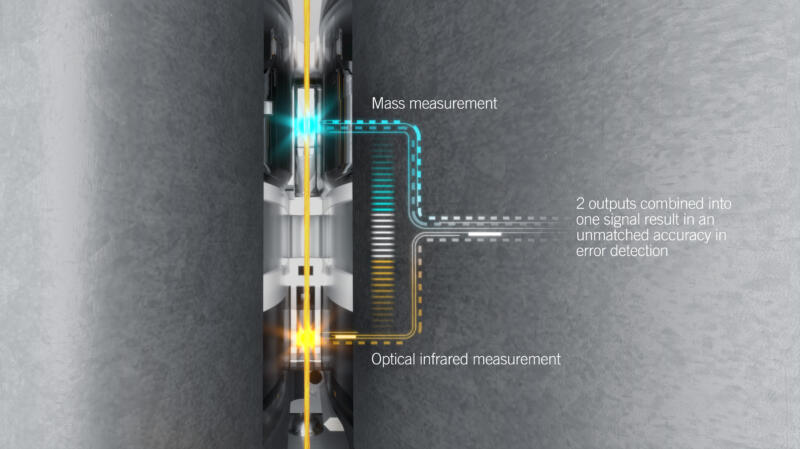How to reach the most accurate fault detection and precisest cut execution
PRISMA’s simultaneous dual measurement is the most effective way to detect basic faults in yarn quality control. Providing spinning mills with the best yarn quality while reducing waste, splice cycles and energy consumption. PRISMA's optical infrared and mass sensors work in harmony, combining the two outputs into one signal. This ensures the most accurate fault detection and the most precise cut execution.
The sensor takes into account factors like raw material, type of fault, length of the fault, and even hairiness, which results in the best recognition and classification of faults by length and intensity.
Spinning mills that rely on PRISMA can be sure of the highest profitability at all times.
YarnMaster PRISMA simultaneous optical and mass sensor measurement
Why invest in dual measurement technology?
Every sensor technology possesses its strengths and limitations. Even with an incorporated yarn clearing system, there may still be defects in the yarn that could result in potential complaints. Through the utilization of yarn clearers, equipped with both optical and capacitive measurements, spinning mills are investing in comprehensive quality control. It's crucial to note significant variations exist among dual measurement technologies available today.
With the launch of PRIMSA in 2019, Loepfe was the first to bring dual measurement to the market.
This innovative system utilizes two powerful sensor technologies and unique software for simultaneous signal processing. As a result, PRISMA's dual measurement capabilities remain unparalleled in today's market.
The benefits of a clever software
The clever PRISMA software ensures yarn excellence and straightforward handling at all times. Both sensors monitor the yarn concurrently, fusing their outputs into a single signal before classifying the detected fault according to its length and strength. The clearing system assesses exclusively this combined output rather than individual signals - guaranteeing the identification of every type of defect regardless of volume, mass or size.
By utilizing the exceptional blend of both signals, spinners can rest assured that any type of fault will be detected. The sensors and the software consider aspects such as raw material, type of fault, length of the fault and hairiness. PRISMA also offers the NSLT Cluster feature that can detect irregular accumulations and periodical faults.
By utilizing the PRISMA system, operators can easily track the length and combined intensity of each defect in the provided cut history for every spindle. This eliminates the need for separate reporting since all issues are measured through a comprehensive system. With these detailed insights about the yarn properties, decisions based on accurate data can be made.

The simultaneous dual measurement technology is exceptionally user-friendly. There's no need for the user to be concerned with configuring or combining the two sensors, nor choosing which sensor should take precedence in evaluating and determining whether a fault needs cutting or not. The smart functionality of the PRISMA clearer system guarantees an optimal setup is always achieved.